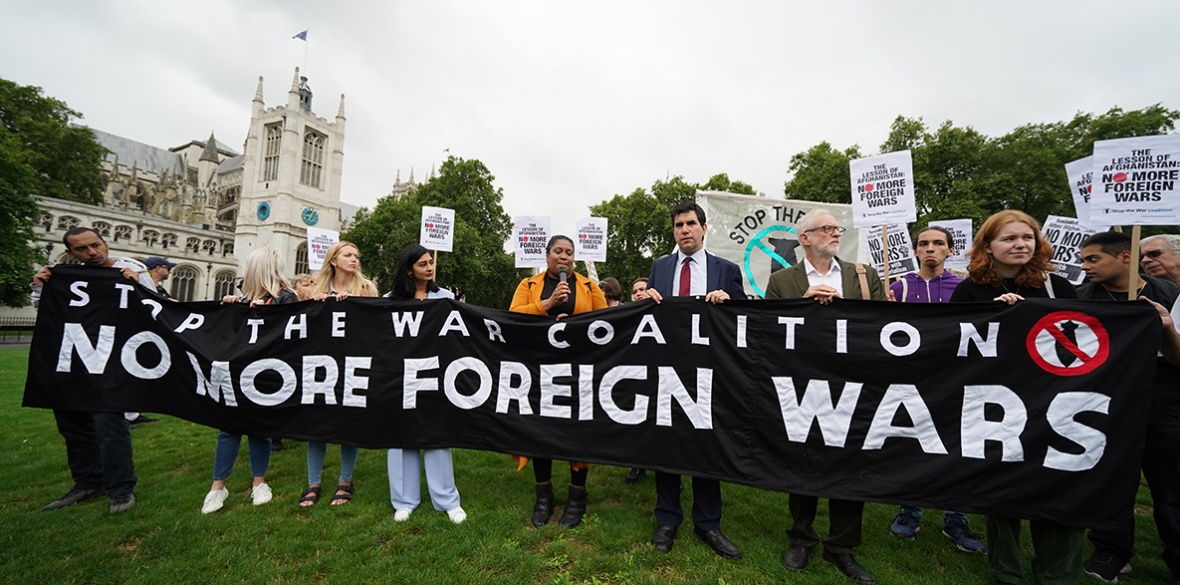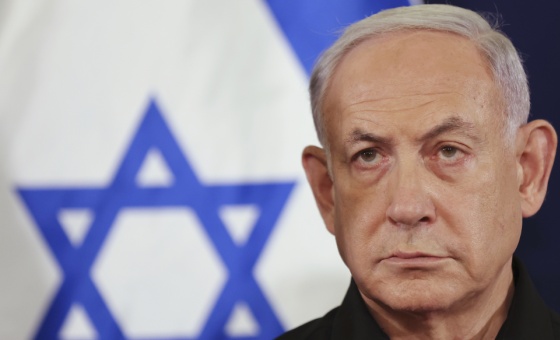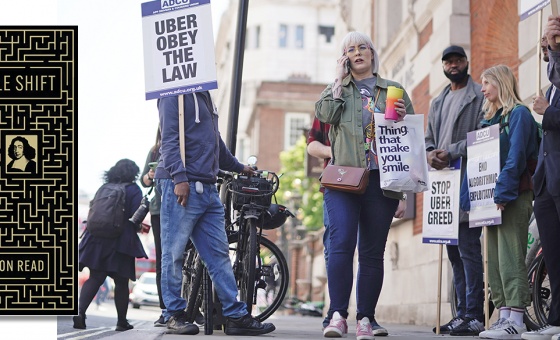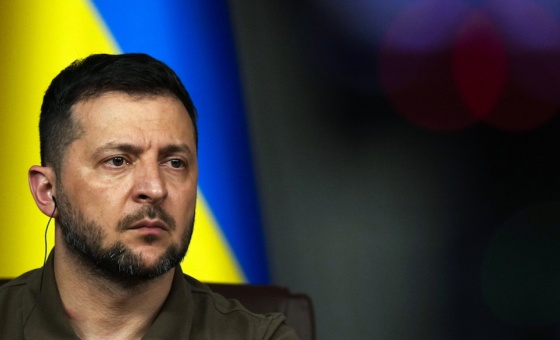This is the last article you can read this month
You can read more article this month
You can read more articles this month
Sorry your limit is up for this month
Reset on:
Please help support the Morning Star by subscribing here
THOSE who recall Andrew Fisher’s histrionic resignation as Labour Party policy director in autumn 2019, delivered in such a way as to be inevitably leaked and thereby do significant damage to the then-struggling Corbyn leadership of the party, should not have been surprised at his latest sally.
Fisher has demanded that the Stop the War Coalition disband itself, and abused the “warped minds of the withered remnants” of its leadership, because it does not speak in his name in relation to the Ukraine war, in which he supports Nato policy.
This particular warped, withered remnant was not shocked — “Cowards will flinch, traitors will sneer” after all. Check the story of the frog and the scorpion for details. Such response as Fisher’s article requires can be found at Stopwar.org.uk for those interested.
But his petulant demand highlights a serious issue for the left, and one that strikes at the heart of Corbynism and its legacy.
It is about the relationship of a domestic programme of reform to the international policy of the British state. This was a controversy that bubbled away throughout Jeremy Corbyn’s leadership.
There was a view within our camp that held that, since we were proposing a radical challenge to prevailing economic and social policy in Britain, it was an unnecessary and unwelcome aggravation to upset the establishment in the field of foreign and defence policy too.
Some people advocating such a view really appeared to believe in the positive role of Nato and nuclear weapons and advocated for no change in Britain’s major international relationships; “Give the generals what they want” was their slogan, whether that be more weapons or even a war.
Others felt it was just too much bother to be taking oppositional positions on foreign policy issues since it wound up the bourgeoisie and the right wing of the Parliamentary Labour Party no end while not being an obvious vote-winner.
Thus Corbyn’s team, on international matters, was an alliance of those who prioritised the global South and those who preferred the General Staff.
Corbyn himself was certainly in the anti-imperialist camp — it is indeed perhaps his strongest personal commitment, to the point where I suspect that he was the real target of Fisher’s bile.
It was certainly Corbyn’s international agenda that caused the establishment the most angst. His Nato scepticism, unwillingness to countenance using nuclear weapons, and determination to pressure Israel to concede justice to the Palestinians — these were the things the elite and its echo chamber in the Parliamentary Labour Party could not abide.
“A Very British Coup” would not be launched to prevent water industry nationalisation — but when Britain’s lamentable world role is menaced, that is a different matter.
If you doubt that, recall the soldiers using a picture of Corbyn as target practice. They were not worrying about a higher rate of tax.
So it is true that life might have been easier if Corbyn and most of his team had not been anti-imperialists. But that is to miss the point.
There is no separation between the domestic and the international in politics, and never has been. That is self-evident at the level of dealing with climate change, pandemics and disarmament.
It should also be obvious that those issues cannot be addressed without confronting the powerful interests — let’s call it the capitalist system for convenience — that obstruct progress.
More than ever, the international walks our own streets, and “over there” and “over here” are an intimate unity. You can thank imperialism for that, as an excellent new book by Charlotte Lydia Riley, Imperial Island, explains.
And if you think Britain’s foreign policy is separate from the interests of the City of London and the arms and energy monopolies, then not only do I have a bridge to sell you, I will even lend you the money to buy it from me, charge an appropriate management fee and use the British state to repossess it by force if you default.
More than ever people understand the link. Perhaps Corbyn’s finest moment as Labour leader was when he responded to the Manchester terror attack during the 2017 general election campaign by linking the outrage with the failures of British foreign policy during the “war on terror.”
The Tories tried to damn him as unpatriotic and “blaming Britain” for the Manchester attack. They had to abandon that line of argument immediately, as opinion polls showed very large majorities agreed with Corbyn.
Many senior Corbynites panicked at the idea of Corbyn’s robust stand although I recall Fisher as being on the right side of that dispute, ironically.
Others, however, had internalised the wisdom, conventional but incorrect, that only the right could benefit from any political debate around terrorism. If that is no longer the case, a large part of the credit belongs to Stop the War.
The campaign against the interventions in Afghanistan, Iraq and Libya have shifted understanding. People realise that these disastrous misadventures have had exactly the consequences Stop the War warned they would.
Yet there were very many amongst those who marched who understood the wars were utterly wrong yet perhaps didn’t fully grasp their nature. They were attributed to individual blunders, lies or hubris, to misreadings of particular situations.
Undoubtedly such factors played their part. But they were not of the essence. All were the product of the systemic deformations of imperialism.
This impels the British bourgeoisie to an aggressive role alongside the US, scrambling to secure a privileged and profitable world order with Britain and the City of London near the apex.
The same factors propel British policy towards the Ukraine war — the pouring in of arms, including depleted uranium; the support for Nato expansion; the blatant obstruction of every possibility of a peace initiative; the despatch of special forces and the Chief of the Defence Staff to Ukraine to assist.
This is all about trying to maintain the unipolar power of the Nato bloc — not to mention its extension in the Pacific via Aukus — and enlarging Washington’s hegemony.
The TUC endorsed this policy last week, while patting itself on the back for being opposed to imperialism. Truth is, if you oppose the imperialism of your adversaries, but remain mute on the imperialism of your own state, you are not an anti-imperialist but a chauvinist.
And it is the absence of any critique of Tory policy — more accurately Sunak-Starmer policy — that is the most striking thing about the TUC resolution and the Fisher article. The villains at home perform as angels on the world stage, it seems, according to their telling.
Social democracy was ever thus, but the experience of Corbynism at least recast its relationship with the anti-imperialism that resonates most strongly, if unsurprisingly, across the global South.
Corbyn remains a hero across much of Latin America, for example, even as he is a Westminster pariah, something that doubtless baffles those also confounded by the refusal of so many states to back Nato over Ukraine.
As for the Stop the War Coalition, its packed AGM at the weekend heard a supportive message from Corbyn and a brave speech by Claudia Webbe affirming its continuing importance. The movement that provided a big part of Corbynism’s original dynamism also embodies the best of its legacy.











